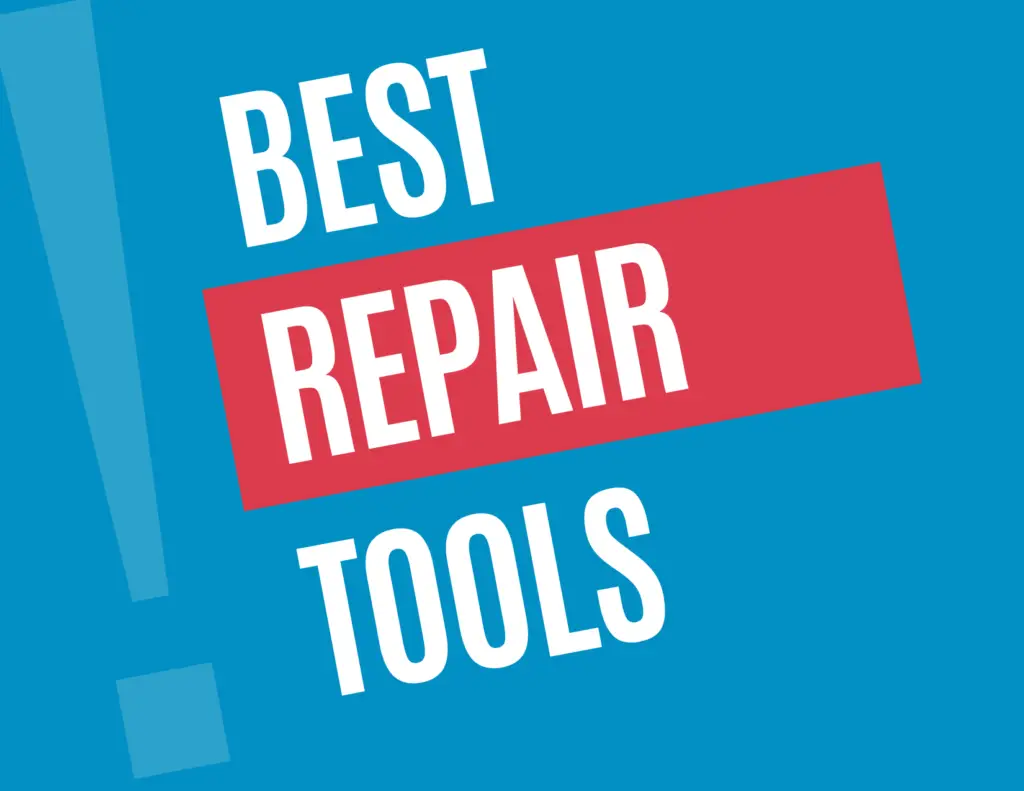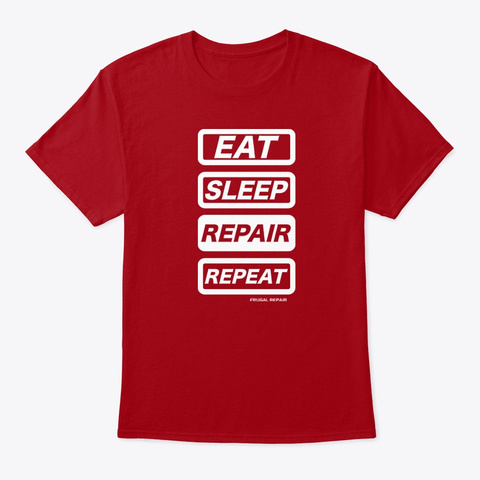
If you or someone you know want recommendations for repair tools, I’ve compiled a list of more than nine key tools that I would recommend.
Disclaimer: As an Amazon Associate I earn from qualifying purchases.
1. Multi-Meter

This is probably the most important tool I use. Get your fixer a multimeter if he/she doesn’t have one or doesn’t have a nice digital one. This one here has every function a digital meter should have and also comes with the probe to measure temperatures, which is a nice bonus. Available on Amazon:
2. Toolkit for Everything (Almost)

I use this constantly when repairing smartphones, laptops, smaller electronics, eye glasses, children’s toys, and so on. If you don’t have a kit like this then you probably should get one. It comes with every “normal” and so many unusual bits and sizes and you may never again find yourself in a situation where you couldn’t open or adjust a certain screw. Available on Amazon:
3. Soldering Iron

Almost everything has some sort of electronic component to it. And many times a wire comes loose or a component gets damaged and needs to be replaced. You may have your dad’s old “soldering gun” laying around but a nice soldering iron makes a world of difference. I have the much more expensive version of this iron but I like this one because it can heat up very fast and this iron comes with interchangeable tips (4 of them are included in this listing). It is more expensive than the very cheap soldering irons but you won’t regret getting a nice one. Make sure you watch a few YT videos on how to solder and take care of your iron tip.
3. Good Tweezers

OK, everyone has tweezers lying around somewhere but those tweezers were probably meant for pulling out hairs. But do you have tweezers that are meant for grabbing little things and have a precision tip?
I use these exact tweezers all of the time in repair projects. I might need to hold on to something tiny or I might need to hold a screw in place while I screw it in. The cheaper tweezers are ok for many things (I still use them) but a “higher end” tweezer like this is an often used tool for me.
4. Magnification

When you want to fix things, you need to be able to see what you are doing or see to identify the problem. This is where magnification comes in to help. If you’re working on a smartphone logic board, you may need a microscope but for many other jobs, there is a simpler and cheaper option. I really like this headset because it’s relatively cheap, and it has three magnification settings, plus a light (though I don’t use the light very much).
5. Storage

You need organization. This storage unit has many draws for all kinds of small parts, tools, etc. I use mine all the time.
6. Laser Thermometer

While I mainly prefer to use my Flir thermal camera to look for short circuits (they produce more heat), or look for cold spots in the house, etc, it is more expensive. For a much more inexpensive tool that can report surface temperatures, I recommend this laser thermometer.
7. Variable Power Supply

When working on electronics you will need to test things with power. This becomes especially important when the power supply in the device isn’t working or you are trying to rule out where a problem is. I like getting a variable power supply that has the widest range. This unit can handle up to 10amps at 30V.
8. Pry Tools & Spudgers

What is a spudger? I didn’t know until I got more serious into repair. Basically, with so many items either glued in or held in by plastic clips or tabs, you need tools to open them with the least amount of damage (hopefully none at all). You also need plastic tools when working with electronics since the plastic does not conduct electricity. An inexpensive kit like this will go well in any fixers tool box.
9. Silicone Work Mat

You always want a clean and organized repair space. But you also want a space that wont’ scratch, is heat resistant, and doesn’t conduct electricity. This silicone repair mat meets all of these requirements.
Other Repair Tools & Suggestions
I have many other repair tool suggestions. These above are ones I would consider to be the most helpful when starting out.
If you would like to see more of the tools I would recommend that I would suggest you check out Tools that I Recommend and my recommended tools page on my Amazon Shop.
And if you want to give the gift of a repair T-shirt, check out one that my daughter designed:

